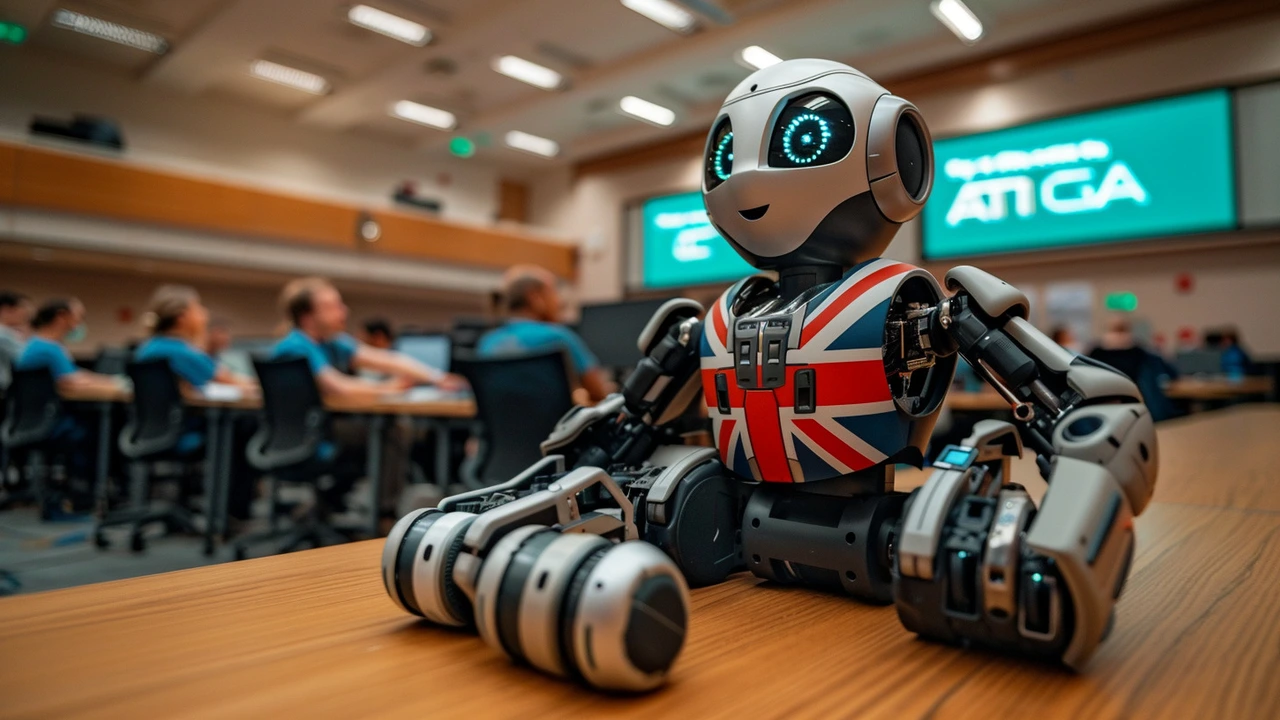Feb
22

- by Preston Callaghan
- 0 Comments
Understanding Artificial General Intelligence
When we talk about Artificial General Intelligence (AGI), we're venturing beyond the realm of conventional AI systems designed for specific tasks, such as voice recognition or playing chess. AGI represents the next frontier in cognitive computing, where machines exhibit human-like intelligence across the board. Imagine a system that can compose a symphony, diagnose a rare medical condition, and invent a new mathematical theorem, all without skipping a beat. The pursuit of AGI has long captivated scientists, technologists, and futurists alike, with its promise to revolutionize how we approach complex challenges and tasks.
What sets AGI apart is its incredible adaptability and learning capabilities. Unlike narrow AI, AGI can theoretically learn how to perform tasks it wasn't explicitly programmed to do, leveraging machine learning and deep learning algorithms to analyze data, understand context, and make informed decisions. As we stand on the brink of creating such intelligent systems, it's important to recognize the technological leaps that have brought us here. Breakthroughs in neural networks, natural language processing, and computational power have laid the groundwork for AGI's development, pushing us closer to achieving this once elusive goal.
The Transition from AGI to Superintelligence
The journey from AGI to Superintelligence is one of the most intriguing aspects of this technological evolution. Superintelligence refers to a state where machines possess cognitive capabilities that far exceed those of the brightest human minds in every conceivable domain, including creativity, general wisdom, and problem-solving. Achieving superintelligence is seen as the natural progression of AGI, yet it presents a leap of unimaginable scale. This shift promises to bring about a paradigm change in nearly every aspect of our lives, from healthcare and education to economics and security.
As we edge closer to this reality, it's pivotal to understand the mechanisms that might drive the emergence of superintelligence. One potential pathway is through recursive self-improvement, where an AGI system iteratively enhances its own intelligence by tweaking its learning algorithms and increasing its cognitive capacities. Another route could involve humans designing more sophisticated algorithms or integrating quantum computing into AGI systems, thereby exponentially increasing their processing power and intelligence. However, these advancements are not without their challenges and risks, raising profound ethical, safety, and societal concerns that must be diligently navigated.
Ethical Considerations and Risks
As we stand on the threshold of creating AGI and superintelligent systems, ethical considerations come to the forefront. The potential for unparalleled intelligence brings with it a host of questions about control, autonomy, and the future role of humanity. One of the most pressing concerns is the alignment problem: ensuring that AGI's goals and decisions are in harmony with human values and interests. This is no small feat, as it involves encoding complex ethical principles into machines and devising fail-safe mechanisms to prevent unintended consequences.
Another significant concern revolves around the societal impact of these technologies. The displacement of jobs by intelligent machines, the potential for misuse by malicious actors, and the concentration of power in the hands of a few tech giants are all pressing issues that require careful consideration and proactive policy responses. Moreover, the risk of an intelligence explosion - a scenario where superintelligent systems rapidly improve their capabilities beyond human control - poses existential risks that we must prepare for. Finding a balance between harnessing the benefits of AGI and mitigating its risks is one of the greatest challenges of our time.
The Road to Superintelligence: Milestones and Challenges
Achieving superintelligence is not an overnight endeavor. It's a complex journey marked by technological milestones and challenges that need to be overcome. One of the first milestones involves creating AGI systems that can understand and process human emotions and social cues, bridging the gap between computational intelligence and human-like understanding. Following this, breakthroughs in quantum computing could provide the necessary computational firepower to catapult AGI into the realm of superintelligence.
However, the road is fraught with challenges. Ensuring the scalability of AGI systems while maintaining ethical boundaries and safety measures is a herculean task. Additionally, the need for massive datasets to train these systems raises concerns about privacy and data security. Navigating these challenges requires a concerted effort from researchers, policymakers, and society at large, emphasizing the importance of collaborative and transparent approaches to AGI development.
Potential Impacts of Superintelligence on Society
The advent of superintelligent systems has the potential to transform society in ways we can barely imagine. In healthcare, we might see AI-driven diagnostics and personalized medicine reaching unprecedented levels of precision. In the realm of scientific research, superintelligence could accelerate breakthroughs in fields ranging from climate change mitigation to space exploration. Moreover, the potential for addressing global challenges such as poverty and inequality through informed, data-driven policies is immense.
Yet, alongside these positive impacts, we must also grapple with the potential for disruption. The economic landscape could shift dramatically, with traditional jobs becoming obsolete and new types of employment emerging. Social and ethical questions about dependence on AI, privacy, and the digital divide will need to be addressed. As superintelligence reshapes our world, it's crucial that we steer this transformation in a way that maximizes benefits while minimizing risks and disparities.
Navigating the Future: Ethical Frameworks and Global Collaboration
As we embark on this journey towards AGI and superintelligence, establishing robust ethical frameworks and fostering global collaboration are paramount. Developing international standards and regulations that guide the development and deployment of AI technologies is essential. This includes mechanisms for transparency, accountability, and public engagement, ensuring that the benefits of superintelligence are distributed equitably across society.
Moreover, fostering a culture of ethical AI development, where researchers and developers prioritize safety, ethical considerations, and the long-term impacts of their work, is critical. By embracing inclusive and collaborative approaches, we can harness the potential of superintelligence to create a future that reflects our highest aspirations and values. As we stand on the brink of this new era, the choices we make today will shape the world for generations to come.






Write a comment